
Millions of years ago, sometime during the dinosaur era, ancient arthropods experimented with an unusual new diet: blood. Those ancestors of today's mosquitoes, ticks and bedbugs were some of the first, but certainly not the last, to try haematophagy.
Though relatively rare as far as diets go, haematophagy or blood-feeding - isn't something that evolved once, or even in a small collection of closely-related animals. Haematophagy evolved independently at least 20 times in arthropods alone, as well as in a bunch of worms, some fish, and a few birds and mammals. Despite all this diversity in animal form, each coven of vampires had to tackle similar problems to refine their grisly lifestyle.
THE RED STUFF
A diet as specialised as blood, a renewable but not easily accessible resource, doesn't appear out of nowhere. Mouthparts originally used for piercing or cutting other food, like plants, gave prototype blood-feeders a head start. Many were also fortunate to live in the right place, on and around potential hosts, as scavengers, parasites, or even predators. Supported by these 'pre-adaptations', it was perhaps only a matter of time before some creature struck blood, discovering deep wells of untapped sustenance flowing just beneath the skin, like a Cretaceous-era oil prospector.
But unlike oil, which is the essence of squished and melted carcasses, blood is alive. It's always moving, shuttling essential nutrients, oxygen, and everything else around the body. It's full of electrolytes and protein, making it a better diet than the plant juices and waste that 'pre-blood-feeders' would have sustained themselves on.
هذه القصة مأخوذة من طبعة October 2022 من BBC Science Focus.
ابدأ النسخة التجريبية المجانية من Magzter GOLD لمدة 7 أيام للوصول إلى آلاف القصص المتميزة المنسقة وأكثر من 9,000 مجلة وصحيفة.
بالفعل مشترك ? تسجيل الدخول
هذه القصة مأخوذة من طبعة October 2022 من BBC Science Focus.
ابدأ النسخة التجريبية المجانية من Magzter GOLD لمدة 7 أيام للوصول إلى آلاف القصص المتميزة المنسقة وأكثر من 9,000 مجلة وصحيفة.
بالفعل مشترك? تسجيل الدخول
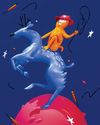
Animals have culture like us, but will share theirs with other species
New research suggests that cultural practices in the animal kingdom can develop across species boundaries
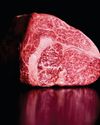
Scientists identify a better predictor for heart health than BMI
You want this fat in your steak, but not in your muscles
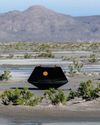
Asteroid sample reveals life's origin
A 'briny broth' may unlock the secrets of life on Earth... and further afield
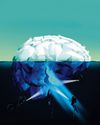
DETECTING DEMENTIA
New science is uncovering how Alzheimer's could be detected decades before symptoms strike. Could it give us the head start needed to fight back and defeat the disease?

A dopamine detox does little for your brain chemistry
Swearing off social media may well improve your mood, but probably not because it resets your dopamine levels

Polyphenols: The key to a healthier, longer life or just another health food fad?
A special type of nutrient that's only found in fruit and veg could be more important to your health than vitamins and minerals

The strange daily routines of successful people won't bring you fame and fortune
Punishing 2am workouts and fistfuls of supplements unlikely to help you get ahead in life.

ALL THE LIGHT - WE CAN SEE
New Jersey is the new Roswell – or so it might seem after a swarm of bright lights, glowing orange-red orbs and unidentified flying objects filled the skies throughout December 2024.
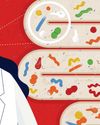
HARD TO STOMACH
Despite being a common condition, the cause of irritable bowel syndrome has proven tricky to find. Now researchers are beginning to understand what's going on in our guts... and the best ways to soothe them

How do you treat perimenopause symptoms?
Both hormonal and natural treatments can be used to treat disruptive perimenopause symptoms. But which ones are right for you?